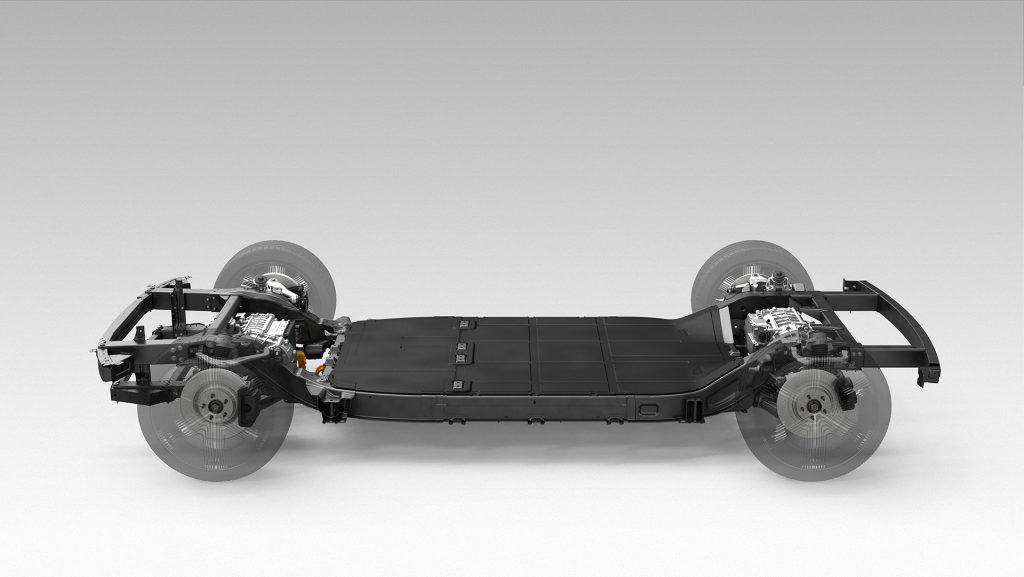 Hyundai Motor Group and Canoo announced today that Hyundai has engaged Canoo to jointly develop an electric vehicle (EV) platform based on Canoo’s proprietary skateboard design for upcoming Hyundai and Kia models.
Hyundai Motor Group and Canoo announced today that Hyundai has engaged Canoo to jointly develop an electric vehicle (EV) platform based on Canoo’s proprietary skateboard design for upcoming Hyundai and Kia models.
As part of the collaboration, Canoo will provide engineering services to help develop a fully scalable, all-electric platform to meet Hyundai and Kia specifications. Hyundai Motor Group expects the platform to help facilitate its commitment to delivering cost-competitive electrified vehicles — ranging from small-sized EVs to Purpose Built Vehicles (PBV) — that meet diverse customer needs.
Canoo, a Los Angeles based company creating EVs for subscription only, offers a skateboard platform which houses the most critical components of the vehicle with a strong emphasis on functional integration, meaning all components fulfill as many functions as possible. This feat of engineering reduces the skateboard size, weight and total number of parts, which ultimately provides more interior cabin space and a more cost-effective EV offering. In addition, the Canoo skateboard is a self-contained unit that can be paired with any cabin design.
Hyundai Motor Group expects an adaptable all-electric platform using Canoo’s scalable skateboard architecture to allow for a simplified and standardized development process for Hyundai and Kia electrified vehicles, which is expected to help reduce cost that can be passed along to consumers. Hyundai Motor Group also expects to reduce complexity of its EV assembly line, allowing for rapid response to changing market demands and customer preferences.
With this collaboration, Hyundai Motor Group doubles down on its recent commitment to invest $87 billion USD over the next five years to foster future growth. As part of this drive, Hyundai plans to invest $52 billion USD in future technologies through 2025, while Kia will invest $25 billion USD in electrification and future mobility technologies, aiming for eco-friendly vehicles to comprise 25% of its total sales by 2025.
Hyundai and Kia both recently announced plans to develop fully electric PBVs. Hyundai presented its first PBV concept as a key pillar of its smart mobility solution strategy at CES 2020 in January. At its CEO Investor Day on January 14, Kia announced its plan to develop PBVs tailored forshared-service companies and logistics companies.
“We were highly impressed by the speed and efficiency in which Canoo developed their innovative EV architecture, making them the perfect engineering partner for us as we transition to become a frontrunner in the future mobility industry,” said Albert Biermann, Head of Research & Development, Hyundai Motor Group. “We will collaborate with Canoo engineers to develop a cost-effective Hyundai platform concept that is autonomous ready and suitable for mass adoption.”
“We have been working diligently to develop a bold new electric vehicle and partnering with a global leader like Hyundai is a validating moment for our young company,” said Ulrich Kranz, In Charge of Canoo. “It is a real honor for us to help Hyundai explore EV architecture concepts for their future models.”
Canoo unveiled its first electric vehicle for subscription only on Sept. 24, 2019, just 19 months after the company’s founding in December2017. Canoo’s proprietary skateboard architecture, which directly houses the batteries and electric drivetrain, has enabled Canoo to reimagine EV design in a way that challenges traditional automotive shape and functionality.
Canoo reached Beta testing phase within 19 months of inception, and the company recently opened the waitlist for its first vehicle. This is a major milestone for the company and the culmination of the efforts of 300+ experts working to deliver a proof of concept of Canoo’s backbone architectural systems. Canoo’s first vehicle will launch in 2021, and is designed for a world in which transportation is becoming increasingly electric, shared and autonomous.To learn more or join the canoo waitlist, please click HERE.